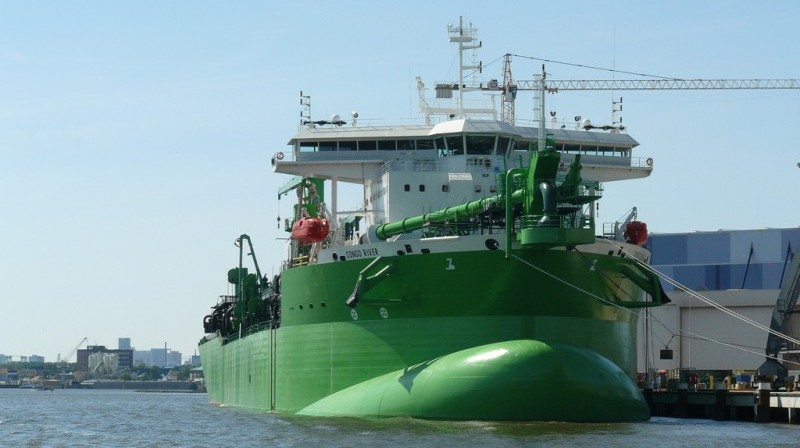The shipping industry will be urged to align with international climate goals under a declaration to be launched at a climate summit in Paris next Tuesday.
The intervention puts shipping emissions on the agenda for some fifty heads of state expected to attend president Emmanuel Macron’s anniversary meeting for the Paris climate agreement.
It will shine a spotlight on negotiations at the International Maritime Organization (IMO), which are due to produce an initial climate strategy for shipping in April 2018.
A copy of the statement obtained by Climate Home News calls on the sector to do its bit to hold global warming “well below 2C” and aim for 1.5C.
“International shipping, like all other sectors of human activity, must take urgent action in consideration of these vital objectives for the future of the planet and of humanity,” it says.
That means peaking emissions “in the short term” and reaching carbon neutrality “towards the second half of this century”. The language is significantly stronger than the “aspirational” targets proposed by industry groups.
The IMO’s initial strategy should include policies with “immediate effect” – a category that may include speed limits at sea – as well as developing longer term measures, the statement says.
Report: UN shipping climate talks ‘captured’ by industry lobbyists
The document has been sent to French embassies around the world for promotion, according to a source familiar with the initiative. A number of countries are expected to sign up in Paris, with the diplomatic push continuing up until the April IMO meeting. It is not clear whether Macron will personally endorse it.
The “Paris Declaration” is subtitled the “Tony de Brum declaration”, in homage to the recently deceased Marshall Islands statesman who challenged his country’s flag registry to take a lead on the matter.
Marshall Islands president Hilda Heine has taken up his campaign, claiming the world’s second largest registry is on her side. On the sidelines of UN climate talks in Bonn last month, she said “disappointingly little progress” had been made at the IMO, adding: “Ambitious climate action and sustainable growth of the shipping sector are both possible. And both are essential.”
Talks at the IMO to date have been tense, with a handful of European and island states calling for high ambition, while major emerging economies raise concerns about the cost. The likes of Brazil have argued rich and poor countries have different responsibilities when it comes to addressing climate change – including in the shipping sector.
The declaration implicitly rejects that argument, saying the strategy should “equally apply to all ships regardless of their flag”. It adds, though, that “disproportionate impacts” on small island states and the poorest countries should be addressed.
There are also strong industry voices to contend with. Research by lobbying watchdog Influence Map has shown they have a significant presence in national delegations to the IMO as well as observer bodies.
The influential International Chamber of Shipping opposes a binding cap on emissions, on the basis it could inhibit world trade and development. It has argued emission reduction policies should wait until the IMO has gathered ship-level data on fuel use, delaying action until 2023.
Shipping executive: ‘We have deliberately misled public on climate’
Laurence Tubiana, a key architect of the Paris Agreement who now leads the European Climate Foundation, cited shipping as a priority issue for Macron’s summit.
In response to a question at a phone briefing for reporters about the political outcomes expected in Paris, she said: “This summit will be an opportunity for the senior ministers and heads of state present, to turn the political high ambition that helped deliver the Paris Agreement, into economic reality.
“It is a coalition of the willing on climate action. An opportunity not just to make announcements, but also to build alliances of like-minded countries across a number of areas, from moving away from coal to financing mitigation and adaptation, charting the way to carbon neutrality by 2050 and reducing emissions from shipping.”
A spokesperson for the IMO said countries were encouraged to raise the position expressed in the declaration at UN shipping talks, “the right and proper place” for such discussions.
IMO chief Kitack Lim told delegates at its annual assembly on 27 November “the whole world will be watching” in April when they set out a climate strategy.
“I urge you, be bold; set ambitious goals that really will make a difference,” he said. “You have a real opportunity here to do something of lasting significance. Make the most of it.”
